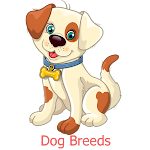Introduction
The Doberman Pinscher, often simply referred to as the Doberman, is a regal and majestic breed known for its loyalty, intelligence, and athleticism. Originating in Germany in the late 19th century, Dobermans were initially bred as guard dogs but have since become beloved family pets and working dogs. In this guide, we will explore the characteristics of the Doberman Pinscher, their care and training needs, as well as their history and reputation.
History and Origins
The Doberman Pinscher was developed by a German tax collector named Louis Dobermann in the late 1800s. Dobermann wanted a loyal and protective companion to accompany him on his rounds and created the breed by selectively crossing several breeds, including the Rottweiler, Black and Tan Terrier, and Greyhound. The result was a versatile and intelligent dog that excelled in various roles, from guarding to police work.
Characteristics
Dobermans are known for their sleek and muscular bodies, with a distinctive black and tan coat. They are medium to large-sized dogs, with males typically standing between 26 to 28 inches at the shoulder and weighing 75 to 100 pounds. Females are slightly smaller, standing between 24 to 26 inches and weighing 60 to 90 pounds.
Temperament
While they may have a reputation as fierce guard dogs, Dobermans are actually loving and affectionate pets that bond closely with their families. They are highly intelligent and eager to please, making them easy to train. However, they are also strong-willed and need a firm and consistent hand in training to prevent any issues with aggression or dominance.
Exercise Needs
Dobermans are active and energetic dogs that require regular exercise to stay healthy and happy. They enjoy activities such as running, playing fetch, and agility training. Daily walks and play sessions are essential to keep them mentally stimulated and prevent boredom-related behaviors.
Care and Grooming
Dobermans have short coats that are easy to maintain, requiring only regular brushing to remove loose hair and dirt. They are clean dogs that typically do not have a strong doggy odor, so bathing is only necessary when they get particularly dirty. Regular nail trims, teeth brushing, and ear cleaning are also important parts of their grooming routine.
Training and Socialization
Early training and socialization are crucial for Dobermans to ensure they grow up to be well-adjusted and obedient members of the family. Positive reinforcement methods work best with this sensitive breed, as they respond well to praise and rewards. Exposing them to various people, animals, and environments from a young age will help prevent any issues with fear or aggression.
Health Concerns
Like all purebred dogs, Dobermans are prone to certain health issues that potential owners should be aware of. These include dilated cardiomyopathy, von Willebrand's disease, hip dysplasia, and bloat. Regular vet check-ups, a healthy diet, and plenty of exercise can help prevent or manage these conditions.
Conclusion
In conclusion, the Doberman Pinscher is a majestic and loyal breed that makes a wonderful companion for the right owner. Their intelligence, loyalty, and athleticism make them well-suited for various roles, from family pet to working dog. With proper care, training, and socialization, Dobermans can thrive in any environment and bring joy and companionship to their families for many years to come.
FAQs
Q: Are Dobermans good with children?
A: Dobermans can be great family pets and are often good with children when properly socialized and trained. However, they are a strong and energetic breed, so supervision is always recommended when they are around young children.
Q: Do Dobermans make good guard dogs?
A: Yes, Dobermans are excellent guard dogs due to their protective nature and loyalty to their families. They are highly alert and will not hesitate to defend their home and loved ones if they perceive a threat.
Q: How much exercise does a Doberman need?
A: Dobermans are active dogs that require at least an hour of exercise each day to stay healthy and happy. This can include walks, runs, playtime, and training sessions to keep them mentally and physically stimulated.
YOU MAY LIKE Dog names:
100 Trendy Dog Names for Fashionable Pups100 Whimsical Dog Names for Playful Pooches
30 Scottish Dog Names
Best Black Dog Names: The Ultimate List
Celebrity-Inspired Dog Names for Your Star Pooch
Choosing Dog Names for Good Luck and Prosperity
Choosing Dog Names That Are Easy to Recall
Choosing Dog Names That Fit Your Familyʼs Style
Choosing Dog Names That Honor Cultural Heritage


